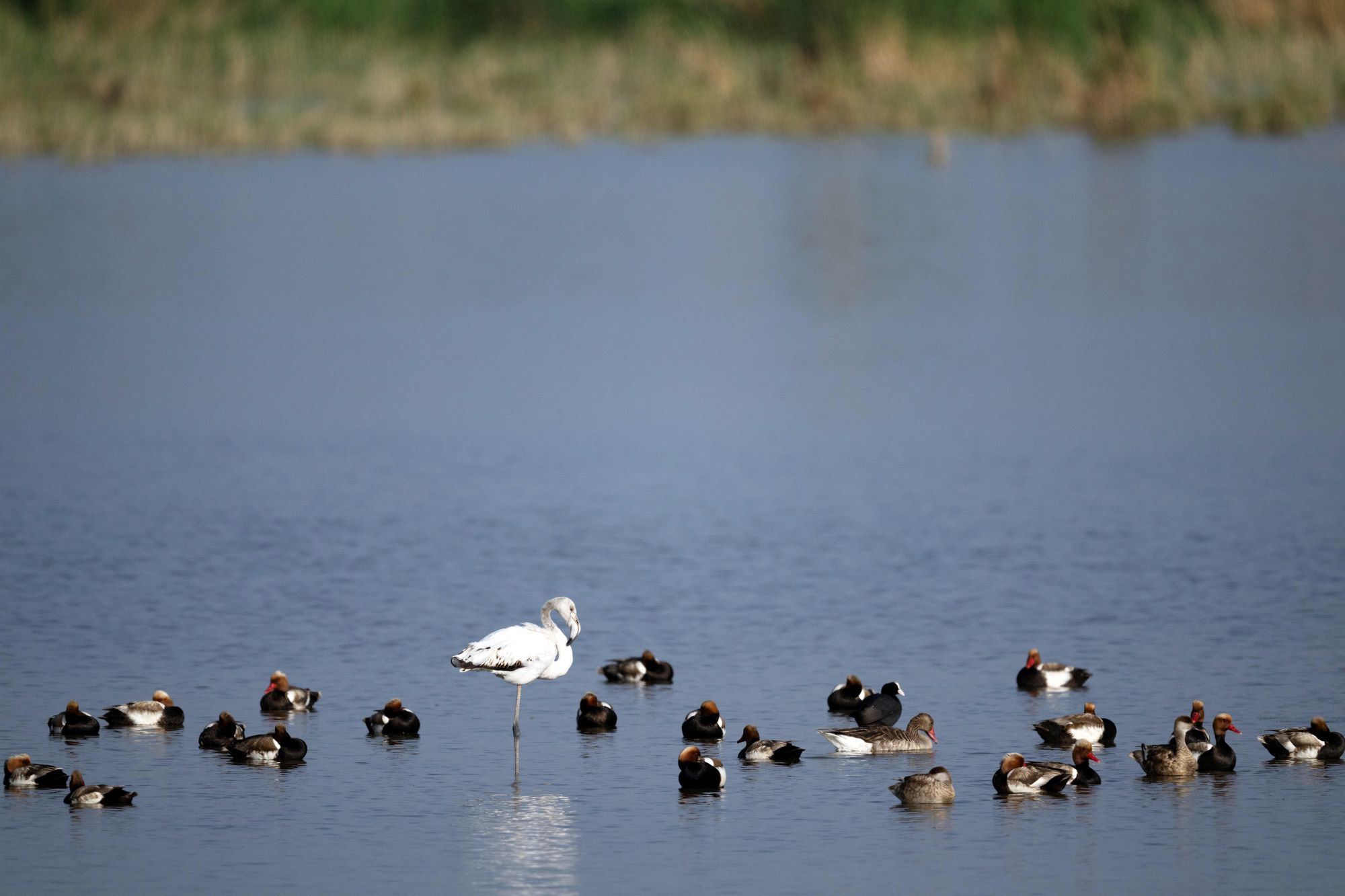Integrated ecological efforts assist green development in China's western region
- Written by Telegraph Magazine
HOHHOT, CHINA – Media OutReach Newswire - 17 October 2024 - Under the warm autumn sun, hundreds of farmers are racing to seize the remaining chance before winter to plant trees along the banks of Ulan Suhai Lake, the largest freshwater lake in the Yellow River basin.

A key battlefield in China's ecological project, known as the Three-North Shelterbelt Forest Program, the lake located on the northern bank of the middle reaches of the Yellow River is on the edge of the Ulan Buh Desert, the eighth-largest in China.
The autumn afforestation campaign this year is expected to add 28 hectares of artificial forest in the northwestern bank of the lake, said Zhao Guochen, director of the forest and grass bureau of Urad Front Banner in the city of Bayannur, Inner Mongolia Autonomous Region.
He said that in recent years thanks to improvements in the sand-control planting technique, tree saplings planted between Oct. 1 and the end of November have had a high survival rate, despite the seasonal drop in temperatures.
"Compared with traditional planting time in spring and summer, the evaporation in autumn is smaller and the incidence of plant diseases and pests is lower, so newly-planted seedlings can absorb sufficient water and nutrients from the soil to sprout new roots," Zhao said.
In addition, in autumn, farmers have more spare time to take part in the ecological campaign after they reap their own harvest, he added.
The afforestation is a part of integrated ecological conservation efforts that span mountains, rivers, forests, fields, lakes, grass and sand in the area, aimed at creating a wildlife haven and erecting a green ecological barrier to besiege desertification.
Liu Wenbin, 53, is the captain of the lake's patrol team. Looking up at flocks of migratory birds flying over the lake, he said the lake's 293 square kilometers of water area is like his home. "It's all too familiar to me."
The local veteran conservationist believes the number of wild birds is an important indicator of the lake's ecology.
"There are now more than 260 varieties of birds migrating and breeding in the lake area. In May this year, we discovered greater flamingos; the first sighting of the species in the lake," he said.
However, over two decades ago, yellow algae often blanketed the lake in summer, resulting in the deaths of large numbers of fish and driving away birds. The large algae blooms were the result of pollutants, in the form of industrial and agricultural wastewater and domestic sewage, discharged into the lake, said Liu.
Bao Wei, director of the lake's ecological protection center, said that since 2018, the local authority has carried out comprehensive conservation of mountains, water, forests, fields, lakes, grass and sand in the river basin.
The afforestation efforts have been combined with dredging to smooth out river-lake connectivity, pollution treatment, biodiversity protection and the lake water protection and management, said Bao.
Similar to Ulan Suhai Lake, many places in China's western region is ecologically fragile, suffering problems such as vegetation destruction, soil erosion, rocky desertification, desertification, soil salinization and biodiversity reduction.
For example, there are the high-altitude headwaters of the Yellow River in west China's Gansu Province, which are primarily composed of grassland and wetlands, and the karst landscape in south China's Guizhou Province that renders rocky desertification challenges.
The Chinese government has embarked on a raft of measures to carry out comprehensive and integrated conservation and restoration of the mountain, water, forest, farmland, lake, and grassland in these ecologically fragile places.
In 2021, the General Office of the State Council issued a guideline on scientific measures to fundamentally improve the country's natural environment, urging efforts to grow trees and grass following the inherent rules of the ecosystem to improve the stability of the ecosystem and its capacity for self-repair, while coordinating the protection, restoration and controlling of mountains, rivers, forests, farmland, lakes, grass and sand.
The guideline underscores the principle of considering local conditions, land situations and the capacity of water resources in vegetation selection, in order to build a healthy and stable ecosystem, as well as carrying out land greening frugally and pragmatically across the country.
"In October, some 50,000 to 60,000 ruddy shelducks perched around Ulan Suhai Lake, attracting a swarm of tourists during the week-long National Day holiday from Oct. 1 to 7," said Liu.
In 2023, the lake area received 412,400 tourists and achieved direct tourism income of 38.2 million yuan (about 5.4 million U.S. dollars), a year-on-year increase of 806.37 percent and 780.78 percent, respectively, which further proved the feasibility of China's development concept of "lucid waters and lush mountains are invaluable assets."
Hashtag: #China #Mongolia
The issuer is solely responsible for the content of this announcement.











